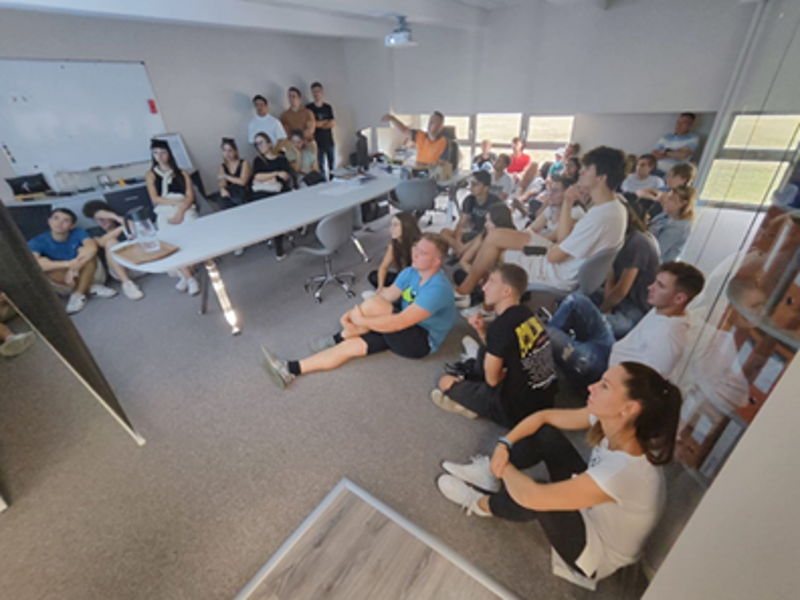School closures under Covid put lower primary school pupils back half a semester

A recent study by Hungarian researchers is the first to quantify not only the short-term but also the long-term effects of forced distance education during the coronavirus. It was already known from previous research abroad that distance teaching, although more than nothing, is much less effective than face-to-face teaching.
It was found that learning losses are cumulative and overlapping. The longer the closure and the more often it happens, the more negative the impact on students’ skills.
The data were collected from around 80 thousand students in grades 1-8 in math, reading and science in 2015 and monitored from 2018-21, before and during Covid. The short-term impact of the closures was assessed with a follow-up period of three months and the long term impact with a follow-up period of 18 months. Results were published in February 2023 in the journal Learning and Instruction.
On average, leraning progress during the weeks of online learning was half to one third slower.
During the closures, kindergarten children spent a minimum of 16 weeks at home (without formal distance education), lower primary students received at least 19 weeks of distance teaching and upper primary students at least 22 weeks of online learning. For first graders, the lack of pre-primary education was most pronounced in basic numeracy skills, with a short-term deficit of five school weeks after the first wave of kindergarten closures in 2020 (1 week in reading and 2 weeks in reasoning skills). The long-term drawback is that first-year pupils starting school in 2021 are already on average 8 weeks behind as a result of the previous year’s restrictions, i.e half of the time during which the schools were closed, and their maths skills in particular have suffered.
The learning loss affected especially the lower primary school pupils – in learning to read to the most extent. In grades 2-4, the researchers found a huge long-term gap: 15-16 weeks in reading, 10-11 weeks in science and 9 weeks in maths. In the short term, they had losses of 2-5 weeks. The cumulative disadvantage effects are most pronounced in the lower grades, particularly in reading and science, and could increase the existing gap by up to a quarter. The upper primary school pupils came through this period somewhat more easily, with a long-term gap in reading only .
For the low SES lower primary school students, distance teaching was as if they had never been there, it was worth nothing
Also compared to the others, students from poorer economic and social backgrounds lagged behind more in the short and long term, and their parents were less likely to be able to help them make the transition to distance learning (their performance was not measured against their well-off peers, but compared to the same group’s performance in previous face-to-face education). These students have suffered a longer-term impact – measured in autumn 2021, a year and a half after the closures – in reading and science, with a disadvantage of longer duartion than the 19 weeks of distance learning they received: 23 and 21 weeks respectively, and they also lost 16 weeks in maths. As a result, low SES lower primary school pupils in both groups made little or no progress in their studies when they had to study from home, and their disadvantage increased in the long term, after a year and a half. For them, distance education was like no teaching at all or taking a break from school.
School summer programmes can help to compensate for the accumulated learning loss, but it is also important to motivate students and provide effective feedback.
The research results were based on a decade and a half of research and development projects of the University of Szeged’s Research Group on Educational Theory, and the analyses were supported by a funding project of the Centre for Economic and Regional Research. Authors of the study: Gyöngyvér Molnár, University of Szeged (SZTE), Head of Institute, University Professor, Head of the MTA-SZTE Digital Learning Technologies Research Group, Zoltán Hermann, Staff Member of the Research Centre for Economics and Regional Science, Lecturer of the Corvinus University of Budapest.

Extract from a series of questions from the school surveys on which the study is based